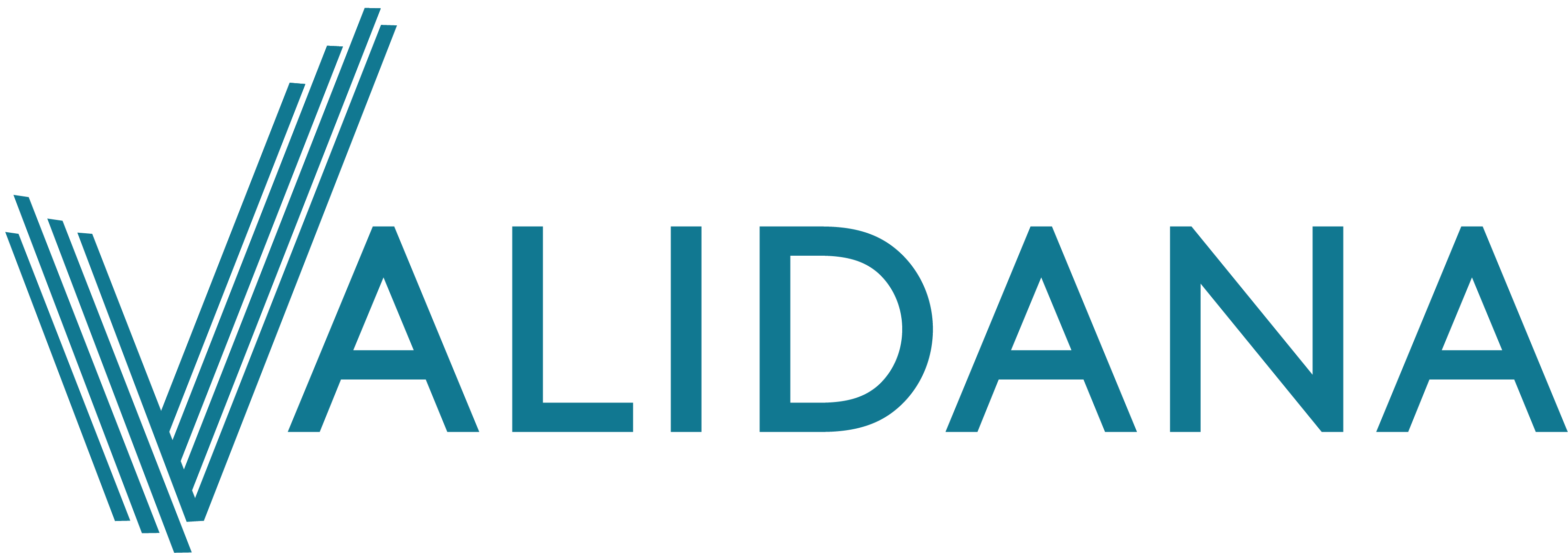Combining Open Badges with Open Blockchain
By combining the Open Badges standard with the open Validana platform we have created a trustworthy exchange for microcredentials. On this technical page we dive deeper into Blockchain, Validana and Open Badges to show the added value of providing an open education infrastructure.
Blockchain

There are many in depth articles about blockchain, so we will only provide a summary here. Although blockchain is mainly known from cryptocurrencies, the fundamental principles of blockchain can be applied to much more. Blockchain is a decentralized data storage and processing environment. All mutations to the data in the blockchain are stored in so called transactions, which are cryptographically signed. Eventually someone, called a miner, will group these transactions in a ‘block’ and add this block at the end of the blockchain. This new block includes a hash of the previous last block. This creates a ‘chain of blocks’ where modifying a single block will make the rest of the chain invalid, because the hash will be different.
Consensus
To determine who may create a block, a consensus algorithm is used. This ensures that multiple blocks with conflicting transactions are not created at the same time. In case this happens anyway, the first block that has another block linking to it will be accepted and the other block will be removed. One of the more popular consensus algorithms is the ‘proof of work’ algorithm, where the one creating the block must perform a certain amount of work (computing power) to create a block.
Nodes
All blocks are shared between participants (called ‘nodes’) in the blockchain. It is not needed to become a participant to create transactions, but participants can verify all transactions. They will check all signatures of the transactions and perform all data mutations locally. Subsequently they can use their own data rather than relying on others to provide correct and truthful data.
Smart Contracts
Some blockchains also support smart contracts. These contracts are pieces of code that enforce what data mutations are allowed and disallowed. This makes it possible to add any desired functionality and is verified by all nodes.
Advantages & Disadvantages
Blockchain solves various problems. First, it provides transparency as every node receives a full copy of the data. Second, it provides tracability and verifiability; a full list of all changes that were made, when they were made and signed by who made the changes is provided to all nodes. In addition, all rules that were in effect at the time of the change are recorded as well. Thirdly, it also enforces compliance through smart contracts. This removes the need for auditing, as all nodes will automatically verify everyone followed the rules.
However, blockchain is not without its problems. The popular proof of work algorithm requires a lot of computing power, which translates into high energy usage. The inability to modify or remove data without breaking the ‘chain of blocks’ makes it hard to fix mistakes and remove privacy sensitive data. Its transparency can also make privacy a challenge.
Open Badges
Open Badges is a system for tracking an individual’s achievements and skills. It is an open and international standard that can be used to accurately represent an individual’s skills and accomplishments. Anyone can become an issuer of badges, which are verifiable credentials of these accomplishments. For more information see the Open Badges website. For the remainder of this article it is assumed the reader has basic knowledge of what Open Badges is.
Current issues
Users of Open Badges are faced with two major problems. The first is receivers keeping track of where all their badges can be found. Everyone can issue badges, which can either be given directly to someone (a signed badge) or hosted on the website of the issuer (a hosted badge). This places a burden on the receiver who must safekeep their signed badges and the links to hosted badges. Also, issuers of badges must inform user they issued a badge, otherwise users may never be aware they own a badge. The second problem is issuers must keep hosting the badges for as long as their receiver need them, which is typically their entire working career. Even for signed badges issuers must make it clear the signing key used belongs to them. Should badges or issuers be no longer available, either because of link rot or because the issuer is no longer around, the badges are lost.
Benefits of using Open Badges on Validana
Validana Badges is an open blockchain that everyone can receive a copy of and store their badges on. This goes hand in hand with the open and decentralized nature of Open Badges. However, receivers of badges need not worry about safekeeping the badges, as the blockchain will do this for them. In addition, they can find all badges they own in a single place without worrying that they are not aware of some of the badges they own. And even if issuers disappear a valid copy remains available at any of the other nodes in the blockchain. Privacy is maintained because users are only identified with their public wallet address instead of name and personal info.
Advantages & Disadvantages
Blockchains solves various problems. First, it provides transparency as every node receives a full copy of the data. Second, it provides tractability and verifiability. A full list of all changes that were made, when they were made and signed by who made the changes is provided to all nodes. In addition, all rules that were in effect at the time of the change are recorded as well. Thirdly, it also enforces compliance through smart contracts. This removed the need for auditing, as all nodes will automatically verify everyone followed the rules.
However, blockchain is not without its own problems. The popular proof of work algorithm requires a lot of computing power, which translates into high energy usage. The inability to modify or remove data without breaking the ‘chain of blocks’ makes it hard to fix mistakes and remove privacy sensitive data. Its transparency can also make privacy a challenge.

Use Case: Badge Collect
BadgeCollect.com is using the open Validana Badges blockchain.
The Validana Badges blockchain is open for everyone to use. However organizations and individuals can also use BadgeCollect. BadgeCollect makes use of this open blockchain and adds some additional features. For example, the ability to create a user profile, where all privacy sensitive data is saved in a separate database and can be made visible per user request. Users can feature their most important badges on their profile. Issuers can easily track who receives their issued badges. BadgeCollect also adds ‘certificates’, a collection of badges that, with the help of smart contracts, can only be received by those who received all individual badges. This makes it easy for organizations that rely on or are used to more traditional certificates for registering accomplishments to get started with badges without technical knowledge. BadgeCollect is free for private individuals.

